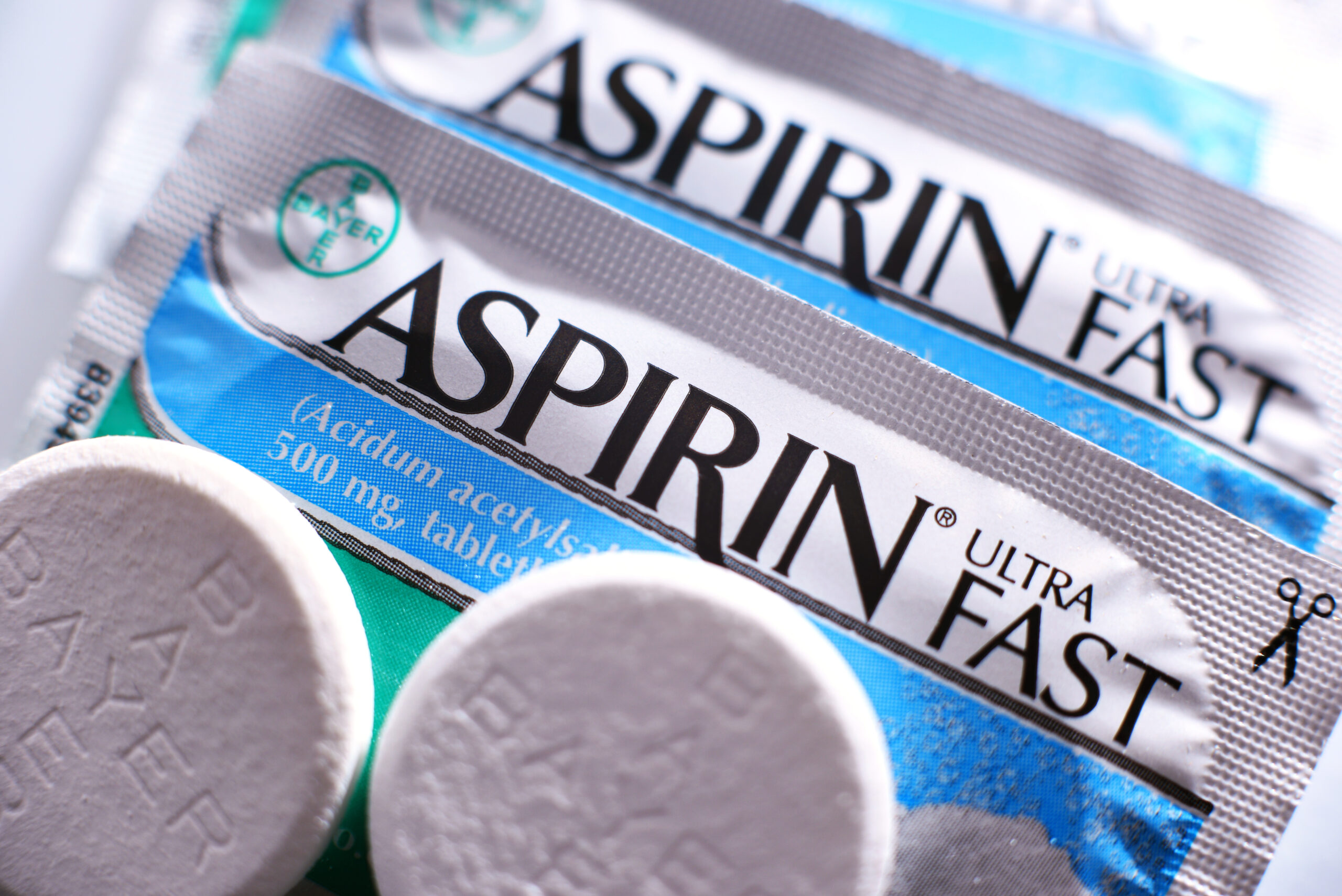One person dies every thirty-four seconds from cardiovascular disease in the United States, according to the CDC. Low-dose aspirin, otherwise known as “baby aspirin,” has been recommended by doctors for older adults to prevent cardiovascular disease. However, in the past 15 years, there has been a departure from using aspirin as a preventive measure against cardiovascular disease due to the increased risk of bleeding.
Aspirin may not be the right medication to prevent cardiovascular disease.
Image Source: Paul Bradbury
Cardiovascular disease is the umbrella term for heart and blood vessel disorders, including coronary artery disease, arrhythmias, heart failure, strokes, and heart attacks. A major effect of cardiovascular disease is atherosclerosis, the buildup of a sticky substance called plaque on the arterial walls, which can block blood flow and even result in a rupture. The body responds to ruptures by forming a blood clot to contain the damage created by the rupture. However, this can lead to a heart attack or stroke if the clot fully blocks blood flow to part of the heart or the brain. In order to prevent these events, clinicians have recommended baby aspirin in the past to patients.
Aspirin is a medication that prevents the release of a hormone called thromboxane A2 (TXA2). TXA2 blocks the clumping of platelets, which is a key step in clot formation. The rationale for taking low-dose aspirin has been to make clots less likely to form, which can prevent heart attacks and strokes in individuals. However, by hindering clot formation, aspirin can also thin the blood. This can be risky for those who are at risk of falling or taking other blood thinners since it raises the risk of excessive bleeding from injuries. Aspirin can also irritate the stomach lining, which can increase the risk of developing stomach ulcers.
In order to study the effects and potential benefits, three major trials studied the role of aspirin in preventing cardiovascular disease. The ASPREE trial focused on prevention in relatively healthy older adults. This study concluded that using low-dose aspirin as a preventive measure did not significantly reduce the risk of cardiovascular disease compared to the placebo. The ARRIVE trial studied individuals who were moderately at risk for cardiovascular disease. The trial concluded that aspirin also had no significant effect on cardiovascular disease and unfortunately increased gastrointestinal bleeding. Finally, the ASCEND trial observed the effect of aspirin on individuals with diabetes and concluded that aspirin actually reduced the risk of cardiovascular disease, but caused more gastrointestinal bleeding.
Given this evidence, the American College of Cardiology (ACC) has stated that aspirin should not be used to prevent cardiovascular disease for patients without risk factors because there is no net benefit. For patients at high risk for cardiovascular disease, aspirin may still be recommended as long as they are not at risk for heavy bleeding.
Aspirin is not the widely recommended drug that it once was and the decision to use it should be discussed with a physician. Fortunately, there is a medication-free way to prevent cardiovascular disease that can be done as soon as tomorrow: diet and exercise!
Featured Image: monticellllo










